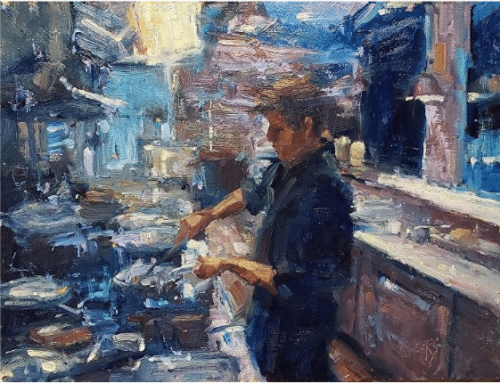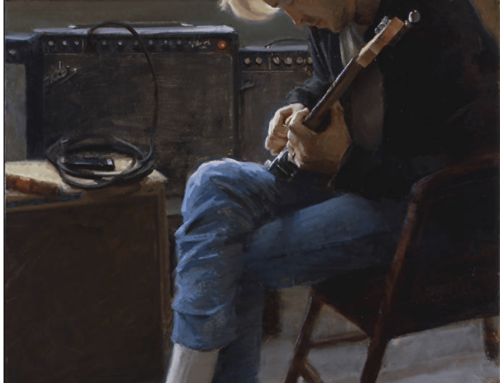Stop trying to make a perfect work of art.
If you want make good art, make lots of art. That’s the spot-on-point advice that artist-authors David Bayles and Ted Orland offer in their book Art & Fear (Observations on the Perils and Rewards of Artmaking). The following tale illustrates their main point.
A pottery teacher split her class into two halves.
To the first half she said, “You will spend the semester studying pottery, planning, designing, and creating your perfect pot. At the end of the semester, there will be a competition to see whose pot is the best.”
To the other half she said, “You will spend your semester making lots of pots. Your grade will be based on the number of completed pots you finish. At the end of the semester, you’ll also have the opportunity to enter your best pot into a competition.”
Quantity & Quality
The first half of the class threw themselves into their research, planning, and design. Then they set about creating their one, perfect pot for the competition.
The second half of the class immediately grabbed fistfulls of clay and started churning out pots. They made big ones, small ones, simple ones, and intricate ones. Their muscles ached for weeks as they gained the strength needed to throw so many pots.
At the end of class, both halves were invited to enter their most perfect pot into the competition. Once the votes were counted, all of the best pots came from the students that were tasked with quantity.
The practice they gained made them significantly better potters than the planners on a quest for a single, perfect pot.
Do you see what happened here? The class tasked with making the most pots also made the best pot. Why? Because artmaking is an iterative process. It’s not so much choreography as it is dancing. You try something, step back and assess, and make your next move.
The trick is to approach every new piece not as a pass-fail test but as an opportunity.
Most people who read those words will agree and then completely not follow through. And I’m talking to myself here too. As soon as you finish (aka stop working on) something, watch it vanish in the review and gun it toward the next destination.
Begin, step back, assess, and begin again.
Make more pots.




